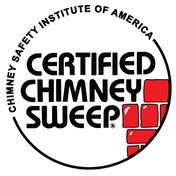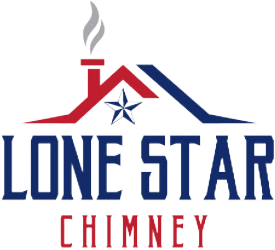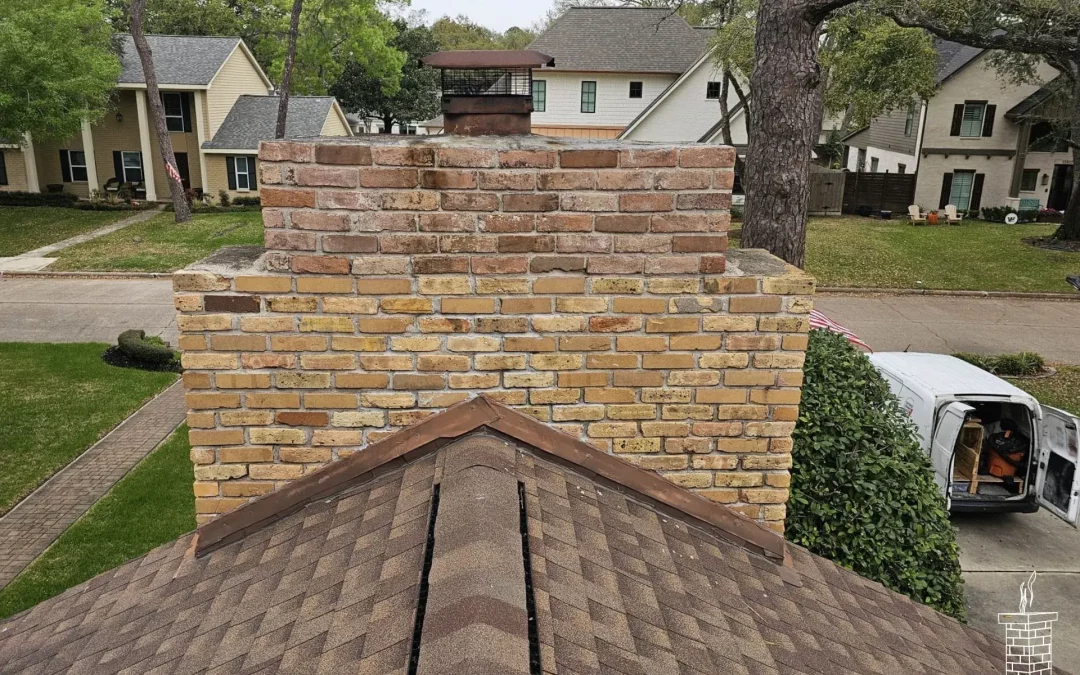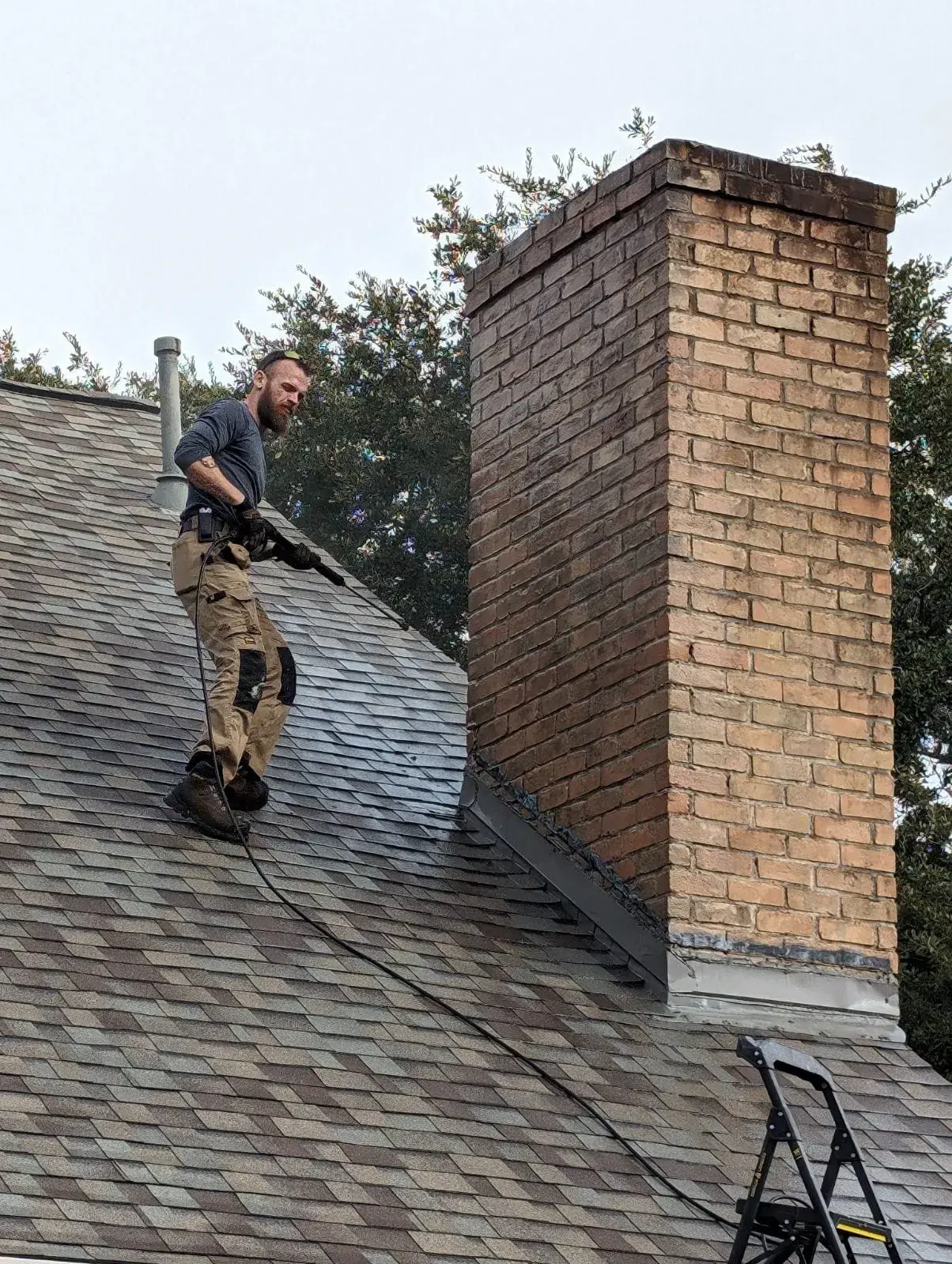When was the last time you checked your chimney for damage? Chimney repair is something that needs to be done right away when you notice damage. If you don’t get problems with your chimney fixed in a timely way the damage can get worse.
The longer you wait to have chimney repair done the greater the damage will become and the higher the cost will be. That’s why it’s important to check for signs that your chimney needs repair on a regular basis.
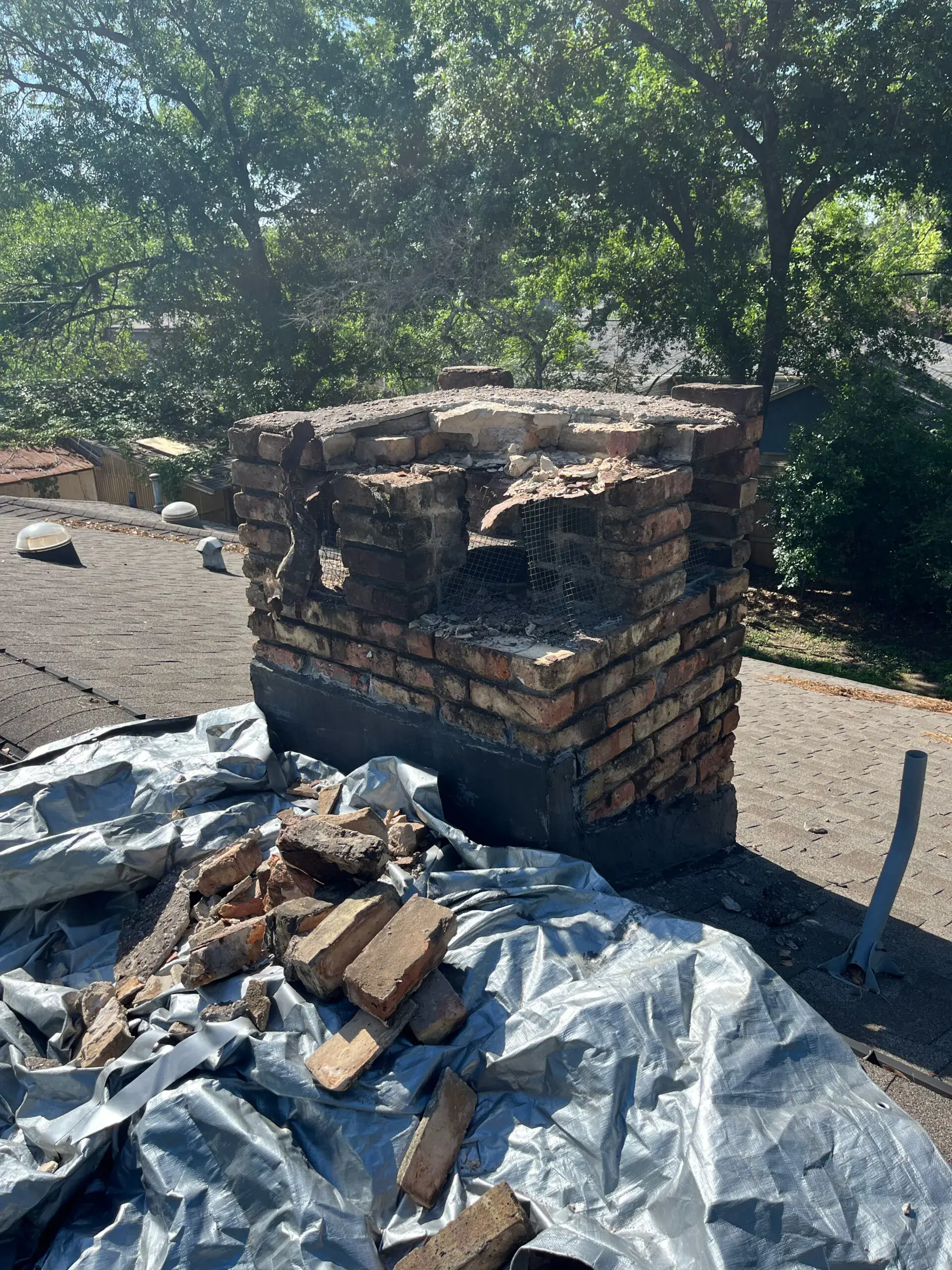
Common Signs Your Chimney Needs Repair
A well-maintained chimney is key to a safe and efficient home heating system. Often, homeowners overlook the subtle signs that their chimney needs repair, leading to dangerous hazards like carbon monoxide leaks and chimney fires. This blog will help you recognize the early indicators that your chimney may be in disrepair. By learning what to watch for, you can take proactive steps to address issues before they become severe, ensuring the safety and longevity of your household heating infrastructure.
Visual Signs of Chimney Damage
One of the easiest ways to tell if you need chimney repair is to look closely at your chimney. If you see any chipping mortar, cracks, missing bricks, loose bricks, or other damage you need chimney repair. Even if the damage you see doesn’t look bad you should get it repaired now before it becomes a bigger problem.
Visible Cracks in the Chimney Structure
Anytime you see visible cracks in the chimney structure you should call a chimney repair specialist. Cracks in the structure of the chimney could grow and make the structure of the chimney unstable. Getting cracks fixed before they become so serious the structural integrity of the chimney is compromised is critical if you want to avoid a very costly chimney repair.
Leaning or Tilting Chimney
If you see that your chimney is leaning or has a noticeable tilt in one direction, call for chimney repair right away. If your chimney is tilting it could fall over and cause damage to your home in addition to being expensive to fix.
Signs of Water Damage
If water gets inside your chimney it can cause damage to your home as well as your chimney. Water damage on your chimney can be discolored bricks, water spots, or spots where bricks are crumbling or chipping. You may also notice water inside the chimney.
Damaged Mortar Joints
Damaged mortar joints are very common. It’s a relatively easy chimney repair for an experienced technician to repair the mortar joint and make sure that your chimney is structurally sound.
White Staining or Efflorescence
If you’re seeing white stains on your chimney that’s called efflorescence. It happens when excess moisture within the chimney seeps through the bricks then evaporates on the outside of the chimney.
When you notice white staining on your chimney you should call for professional chimney repair immediately so that a professional chimney sweep can remove any water or moisture from the chimney and make sure that your chimney liner isn’t damaged.
Rust on Damper or Firebox Components
Another problem caused by moisture is rush on the damper or firebox. Anytime you notice rust on any part of your fireplace it’s time to call in a professional chimney sweep to find the source of the moisture causing the rust and get rid of it.
A Blocked Chimney Flue
When you use your fireplace you should not notice an smoke drifting back into your home. If you have smoke in your home, you may have blocked chimney flue. A professional chimney sweep can clean your chimney to remove the blockage.
Functional Signs of Chimney Damage
If you light a fire and you notice anything unusual in the way that the fire burns or the way that smoke is drawn up through the chimney it’s best to call a professional CSIA-certified technician to inspect your chimney. Any chimney repair that needs to be done can be done safely by a CSIA-certified technician.
Unusual odors
If you smell smoke, creosote, or a chemical type of smell when you use your fireplace that means you need some kind of chimney repair. You should never smell strong odors when your use your fireplace, except for the smell of the wood.
Smoke Entering the Home
Anytime you have smoke entering your home from the chimney you should call a professional to inspect your chimney and find whatever damage is causing the smoke to flow back into your home. Smoke can be dangerous to you and your family so don’t wait to call for chimney repair if you have smoke in the home when you use your fireplace.
Difficulty Starting or Maintaining a Fire
If you have never had trouble starting a fire before but recently you haven’t been able to get the fire going or keep it going the problem may be in your chimney. A chimney sweep can inspect your fireplace and chimney and do any necessary chimney repair to keep your home safe.
Audible Signs of Chimney Damage
Homeowners should never be hearing noises from the chimney. If you’re hearing what sounds like wind in your chimney, or you hear rain in your chimney you could have a cracked fireplace cap or a damaged crown.
Cracking or Popping Sounds
If you hear cracking or popping sounds in your chimney that could indicate a rip or hole in the flue liner, debris falling in the chimney, or other damage that needs to be fixed. The first thing you should do is call a professional chimney sweep and have the chimney cleaned to see if there is any damage the needs to be fixed.
Animal Noises
Animal noises in chimneys are very common. During the cold weather animals may take shelter in a chimney to find warmth and protection from rain. Birds, mice, and other animals all could be trying to live in your chimney. Professional chimney sweeps know how to clean your chimney safely and seal your chimney with a cap so that animals won’t be able to get in.
Preventative Measures and Maintenance Tips
Regular inspections and cleanings are paramount in keeping your chimney in top condition. It’s recommended to have your chimney inspected at least once a year by a certified professional. This helps identify any potential issues before they evolve into costly repairs or safety hazards. Additionally, scheduling routine cleanings can prevent the build-up of creosote, a flammable substance that can lead to chimney fires. By maintaining a consistent inspection and cleaning schedule, homeowners can significantly reduce the risk of chimney-related problems.
In Conclusion
Regular inspections are essential in identifying early signs of chimney damage, such as cracks, rust, and creosote build-up, which, if addressed promptly, prevent potential hazards and costly repairs. Practicing proper fireplace usage, including burning seasoned hardwoods and ensuring adequate ventilation, can significantly reduce residue buildup and harmful emissions, thereby contributing to a safer and more efficient chimney system. Finally, investing in additional protective measures like chimney caps and waterproofing treatments can safeguard against environmental damage, blockages, and masonry degradation, effectively extending the lifespan of your chimney and maintaining its efficiency.
